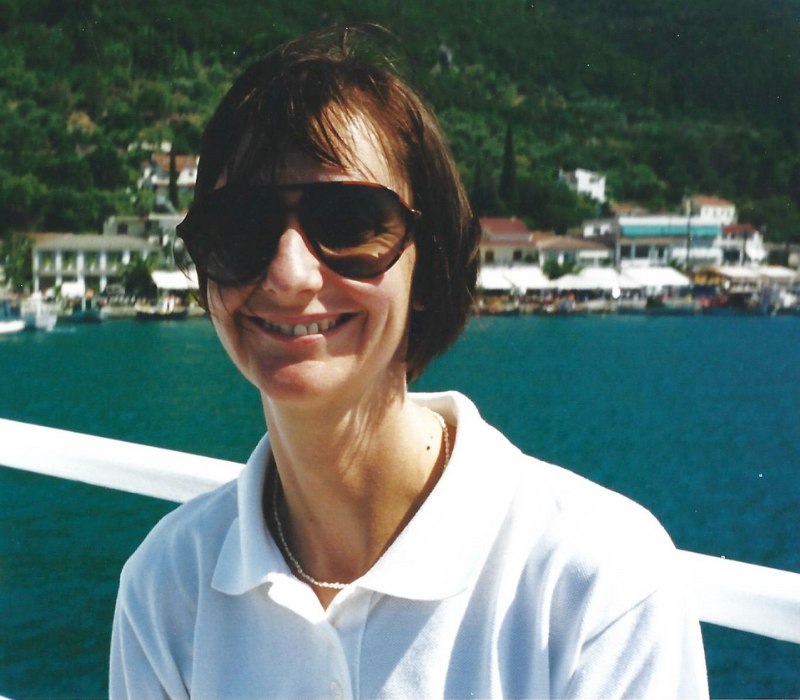 It is with profound sadness that we remember the life and work of our friend and colleague, Hazel Adams Johnstone MBE, whose sudden death on 14 March 2023 has saddened a wide community of both current members of LSE and its alumni. Many of those people will have known Hazel through her association with LSE which dates from her appointment in 1990 in the Department of Geography and Environment. Early in the 1990s Hazel was actively involved in what was then the Gender Institute. This became the Department of Gender Studies, for which Hazel was Department Manager.
It is with profound sadness that we remember the life and work of our friend and colleague, Hazel Adams Johnstone MBE, whose sudden death on 14 March 2023 has saddened a wide community of both current members of LSE and its alumni. Many of those people will have known Hazel through her association with LSE which dates from her appointment in 1990 in the Department of Geography and Environment. Early in the 1990s Hazel was actively involved in what was then the Gender Institute. This became the Department of Gender Studies, for which Hazel was Department Manager.
The continuity of Hazel’s connection with the academic study of Gender was such that for generations of staff and students there existed at the heart of the Department an apparently boundless resource of information (academic and otherwise) matched by faultless judgment and competence. The various sources of expertise on which Hazel could draw came from her own undergraduate and postgraduate years (at the University of Hull and LSE) but also from time spent travelling and perhaps most importantly from wide, and constant, reading. To enter Hazel’s various offices was to enter, literally and metaphorically, a world of books.
That love of the written word, most particularly perhaps that of crime and detective fiction, infused Hazel’s professional life with a vitality towards the various issues and projects with which she engaged. As an active collaborator she worked on the Handbook of Feminist Theory and Detecting the Modern and was always ready to engage creatively with academic work, be it of teachers or students. Those years of dedicated reading enabled her to communicate the real importance, possibility and power of the written word. It is often difficult for any author to assess accurately their own writing; in Hazel there was always a reader who not only valued that form of work but had the ability to assess it. Over the twenty years in which students and staff encountered Hazel there was a person who consistently endorsed the fundamental importance of engaged, rather than instrumental, academic research and publication. Her deep commitment to her role was acknowledged in the 2014 New Year Honours list when she was awarded an MBE for services to Higher Education.
All of these forms of affirmation were accomplished by Hazel with an endless generosity of spirit, warmth towards individuals and encouragement for junior colleagues whether academics or working in administration. It would be a misrepresentation to say that Hazel was not capable of severe, and scathing, judgments of those with whom she passionately disagreed. Such judgments were always expressed with an impressively economical use of the possibilities of contemptuous dismissal. But these unhappy people, expelled from her positive affirmation, were very few and far between and in general existed far beyond her immediate professional life. This allowed Hazel to exist with an endless optimism about the wider academic context in which she worked. In doing so, her example was exemplary in maintaining that essential belief in the vital, irreplaceable, merits of institutions which teach and attempt to understand.
Hazel once said of herself that she was ‘the proud member of the one O-Level and two degrees brigade’. That unorthodox route into the life which she eventually inhabited was an important part of her recognition of the importance of maintaining wider possibilities across all social contexts. Living did not have to follow the same path for everyone, but there were important ways in which collective association could help to ease those paths. In her role as an administrator, at LSE and with the European Journal of Women’s Studies, Hazel’s presence was one which assured others of welcome and assistance.
For her many colleagues, for the hundreds of students who knew her and her close family, Hazel’s death is a sad loss. But it also a loss of an example of how to ‘be’, of how to fulfil every expectation of a given role and at the same time be so much more. As Hazel herself wrote, she made lifelong friends from her earliest days at LSE; that group became ever more extensive. For these many people those shared regrets at Hazel’s death are accompanied by gratitude at what she was able to contribute.
There will be an LSE Memorial held in Hazel’s honour in The Shaw Library (Old Building) on Thursday 8 June 2023 from 5pm. Please register for the event here if you plan to attend, so that we can plan catering.
Written by Professor Mary Evans
 It is with the greatest sadness and heavy hearts that we announce the death of LSE IDEAS Director, Professor Christopher Coker.
It is with the greatest sadness and heavy hearts that we announce the death of LSE IDEAS Director, Professor Christopher Coker.







